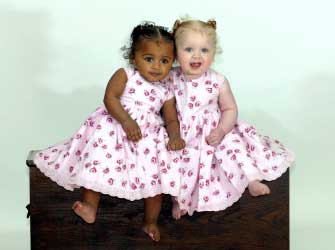A mother of twins was applying for public assistance in Passaic County, N.J., when she made the seemingly uncontroversial claim that one man was responsible for her progeny.
The truth, it turns out, was not so simple.
In an unusual ruling in State Superior Court in Passaic County, Judge Sohail Mohammed found that egg and sperm had colluded to create a medical oddity, according to a report in The New Jersey Law Journal on Thursday. The man who the woman said was the father of her twins was deemed responsible for only one.
The other, the ruling revealed, was conceived during a previously undisclosed tryst that happened within a week of sexual intercourse with the man she claimed was the father.
It was a tangled web of love and biology that gave rise to what The Law Journal called a precedent-setting ruling, one of only a few of such cases across the country. The man originally described as the twins’ father, identified in court documents only as A.S., will now have to pay child support only for the toddler who a DNA test showed was reliably his own.
The case took root when the mother, identified only as T.M., told the Passaic County Board of Social Services in the course of applying for benefits that A.S., her romantic partner, had fathered her twins, The Law Journal reported. The board, in turn, filed an application to establish his paternity and force him to pay child support for the twins, born in January 2013.
But the woman’s claim slowly fell apart. She revealed in testimony that she had had sex with a second, unidentified man within a week of having sex with her romantic partner. A paternity test was ordered.
And when the results came back last November, a routine case became a curiosity destined for legal textbooks.
Judge Mohammed accepted the results after testimony from Karl-Hans Wurzinger, the laboratory director of the Identity Testing Division at Laboratory Corporation of America, The Law Journal reported. Dr. Wurzinger, who has published a study saying that one in 13,000 reported paternity cases involved twins with separate fathers, testified that this was one of those rare cases: The woman’s twins were fertilized by different fathers during the same menstrual cycle.
Jennifer Wu, an obstetrician-gynecologist at Lenox Hill Hospital in Manhattan, called it a case of superfecundation, a rare phenomenon classically illustrated in medical textbooks with a black baby and a white baby who are twins.
A sperm can be viable for up to five days, Dr. Wu said. So if the mother in this case had sex with one of the men, ovulated, and then had sex with the other — all within the course of just under a week — one man’s sperm could have fertilized one egg, while the other’s fertilized another.


